Search Results
Showing results 1 to 20 of 111

Super Shrinkers
Source Institutions
In this activity on page 14 of the PDF (Rethinking the 3 R’s: It’s Easy to be Green), learners turn plain pieces of recycled plastic into shrunken works of art.
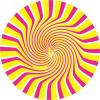
Spinning Blackboard
Source Institutions
Create beautiful spirals by drawing a straight line. This sounds crazy, but you can with a turntable (a record player or lazy susan), paper, and pen.
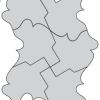
Exploring Tessellations (Grades 6-8)
Source Institutions
In this activity, learners design unique tiles and make repeating patterns to create tessellations. This activity combines the creativity of an art project with the challenge of solving a puzzle.
One-Cut Paper Stars
Source Institutions
Here's a very simple activity if you have paper and scissors: make one cut, unfold, and you have a beautiful star! A great way to learn about polygons and origami mathematics.
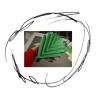
Paper Folding: Unfurling Geometric Paper Shapes
Source Institutions
Use geometry, a ruler, and a steady hand to create these amazing unfurling paper folds!
Mission Insignia
Source Institutions
In this science/art activity, learners create an insignia or emblem for a planet exploration mission.
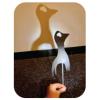
Shadow Puppets
Source Institutions
In this activity, learners will create their own simple shadow puppets, and experiment with light and shadow while playing with them.
Counting Books: Make Your Own!
Source Institutions
On the first night, I saw 5 stars in the desert. On the second night, I saw 10… What do you think I saw on the third night? Combine arts and crafts, literacy, and math by making a counting book.
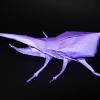
My Insect
Source Institutions
In this activity, learners use information gathered from a variety of sources to design and make their own insect.
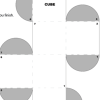
Fold a Crystal
Source Institutions
Rocks are made of minerals, and minerals often have crystal shapes. In this fun activity about geometry in nature, learners create their own crystal shapes out of paper.

Boomerang
Source Institutions
Learners trace, cut out and fly a boomerang, outdoors or in a large indoor space.
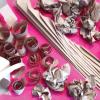
Paper Sculptures
Source Institutions
In this activity, learners manipulate paper to build original 3-dimensional sculptures. Appropriate for any age, learners can use fingers to tear, crumple, or fold, and if available, scissors to cut.
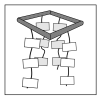
Food Chains and Webs
Source Institutions
In this activity, learners investigate feeding relationships. Learners complete a food web and then make a mobile to represent a food chain.
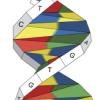
Origami DNA
Source Institutions
In this activity, learners create an origami model of DNA, demonstrating its double helix structure.
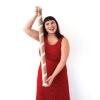
Make Your Own Rainstick
Source Institutions
In this activity, leaners build their very own rainsticks, an instrument filled with pebbles and seeds that create sounds like falling rain. Save costs by using material found around the home.
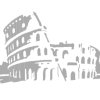
Disappearing Statues
Source Institutions
In this activity (on page 8), learners model how marble statues and buildings are affected by acid rain.
Press Seaweed
Source Institutions
In this activity, learners will collect, dry and press seaweed over the course of four days in a similar way that artists/crafters press flowers.
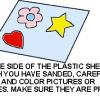
Shrinking Polymers
Source Institutions
In this activity, learners discover that some plastics will shrink when you get them hot. Learners bake polystyrene in a regular oven and discover what happens.
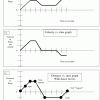
Graph Dance
Source Institutions
In this activity, learners "dance" (move back and forth at varying speeds) by reading a graph. This is a kinesthetic way to help learners interpret and understand how motion is graphed.
Moving Pictures
Source Institutions
In this optics activity, learners create flip books by drawing an image like an eye opening and closing on 24 small pages of paper.
